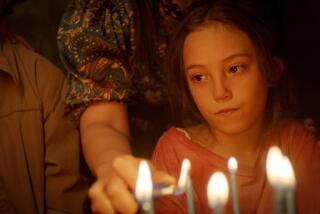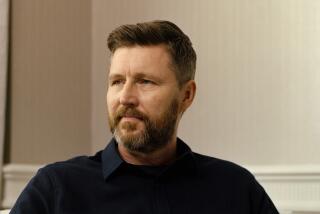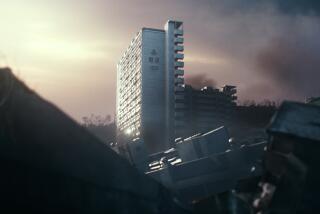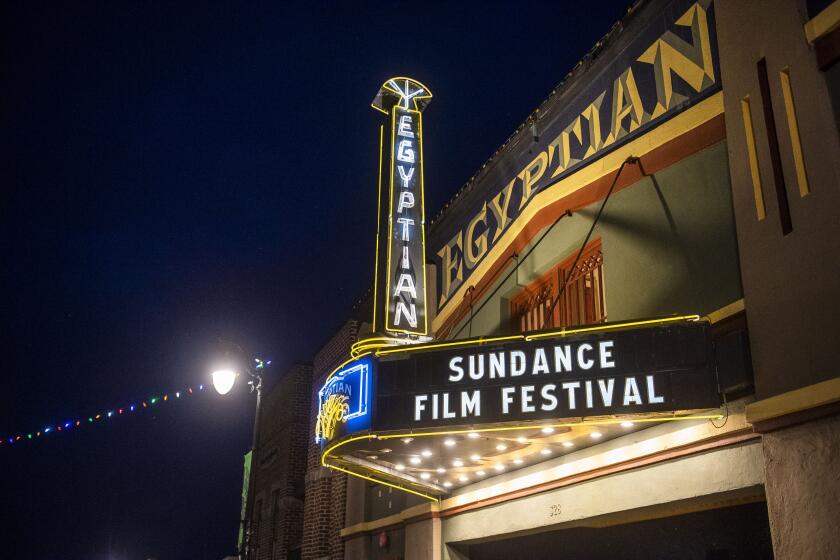From Japan’s Hirokazu Kore-eda, a transcendent cinema grounded in everyday ‘Life’
The Japanese writer-director Hirokazu Kore-eda operates in such a delicately restrained register that his films are often mischaracterized as being more or less the same — visually modest, emotionally perceptive family dramas in which the specters of death, loss and abandonment are never distant.
While that description certainly applies to several of the pictures he has directed over his 26-year career, including “Still Walking” (2009), “Our Little Sister” (2015) and this year’s superb “After the Storm,” one of Kore-eda’s hallmarks as a filmmaker is his ability to locate startling dramatic nuance and tonal variation within a seemingly narrow range. Without raising his voice, he has demonstrated, in film after quietly remarkable film, that he has a great deal to say.
You get some sense of that scope in this week’s partial Kore-eda retrospective presented by the UCLA Film & Television Archive and the Yanai Initiative, in association with the Japan Foundation, Los Angeles; the Academy of Motion Picture Arts and Sciences; and the USC School of Cinematic Arts. (The series kicked off last week with “Death of a Japanese Salesman,” a 2011 documentary directed by Mami Sunada and produced by Kore-eda.)
The first of the five Kore-eda-directed films in the program is the devastating “Nobody Knows” (2004), which will screen Wednesday night. (The filmmaker will be in attendance at every screening except the Sunday night showing of “Air Doll.”) Loosely inspired by a grim 1988 case in which four young Japanese children were found living by themselves in the apartment where they had been abandoned by their mother, “Nobody Knows” has the wrenching yet strangely captivating quality of a neorealist horror film. It captures the cruelty of an experience no kid should have to endure without entirely leaving childhood wonderment behind.
The film’s ripped-from-the-headlines story and patient, observational style are a testament to Kore-eda’s roots in realism, starting with the television documentaries he directed in the ’90s. One of these, “However … ” (1991), an investigation into Japan’s welfare system told through the prism of two suicide cases, had a clear impact on his 1995 narrative debut, “Maborosi,” a hauntingly beautiful portrait of a woman named Yumiko (Makiko Esumi) who is grappling with the impact of her husband’s untimely and inexplicable death.
Seen again today, “Maborosi” further confounds the conventional wisdom of what a Kore-eda picture looks like. It’s a ghost story of sorts, in which reality blurs gently into dream, and gorgeous seaside landscapes play like snapshots of a troubled consciousness. In its sense of crucial things left unstated, of the past forever bearing down on a deceptively serene present, the movie has some of the poetic distance exemplified by the Taiwanese director Hou Hsiao-hsien, one of Kore-eda’s acknowledged filmmaking idols.
Ghosts of a more emphatic sort walk the hallways and offices of a 20th century way station for the dead in “After Life” (1998). A story about how the newly deceased are tasked with choosing the one memory that they will be allowed to carry with them for all eternity, this is Kore-eda at his most elaborately high-concept. It remains, for many, the filmmaker’s greatest achievement, a picture in which the bureaucratic drabness of the setting heightens rather than diminishes the otherworldly profundity of its conceit.
That paradox extends to the scenes of the dead sharing their memories, which are all the more poignant and persuasive for being shot in direct-to-camera interview style. The mix of the grounded and the would-be sublime doesn’t come off nearly as effectively in 2009’s “Air Doll,” a wistful, intermittently beguiling fantasy that contemplates loneliness and existential malaise from the perspective of a plastic inflatable sex toy come to life (played by the terrific South Korean actress Doona Bae).
Much more fondly remembered from that year is “Still Walking,” which follows a bittersweet family reunion to mark the 15th anniversary of a son’s death. Featuring excellent performances by Kirin Kiki and Hiroshi Abe as a mother and son (a character dynamic they would later reprise in “After the Storm”), it shows the filmmaker’s mastery at embedding his drama in the rhythms and rituals of everyday life.
Kore-eda has often been compared to the great Yasujiro Ozu, a compliment that he has tended to wave aside in interviews, noting that he feels a greater affinity for the lesser-known Japanese filmmaker Mikio Naruse. There are elements of both masters’ work in “Still Walking,” but the movie is, if anything, even more deeply shaped by Kore-eda’s own experience: He wrote the script shortly after his mother’s death, and steeped it in richly atmospheric details drawn from his own childhood.
In the end, as with all Kore-eda’s finest films, this intimate triumph doesn’t feel personal to its maker alone. It opens a window onto a world that may seem foreign in its particulars, but proves entirely recognizable in every way that matters.
------------
‘Hirokazu Kore-eda: Cinema From the Outside In’
“Nobody Knows”: Oct. 25, 7 p.m., Ray Stark Family Theatre at USC (Kore-eda in attendance; free admission)
“After Life”: Oct. 26, 9:30 p.m., Downtown Independent Theater (Kore-eda in attendance; $12)
“Still Walking”: Oct. 27, 7:30 p.m., Billy Wilder Theater (Kore-eda in attendance; $9)
“Maborosi”: Oct. 28, 7:30 p.m., Billy Wilder Theater (Kore-eda in attendance; $9)
“Air Doll”: Oct. 29, 7 p.m., Billy Wilder Theater ($9)
See the most-read stories in Entertainment this hour »
Movie Trailers
More to Read
Only good movies
Get the Indie Focus newsletter, Mark Olsen's weekly guide to the world of cinema.
You may occasionally receive promotional content from the Los Angeles Times.







